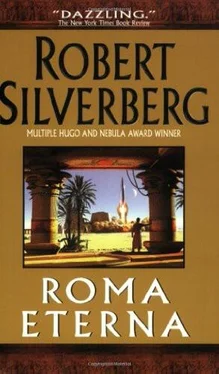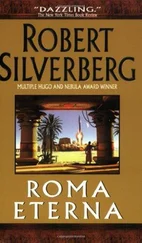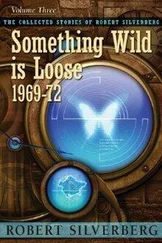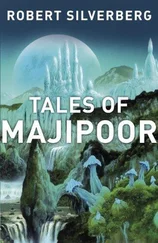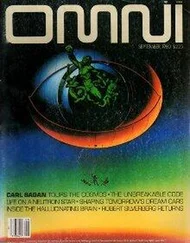Robert Silverberg - Getting to Know the Dragon
Здесь есть возможность читать онлайн «Robert Silverberg - Getting to Know the Dragon» весь текст электронной книги совершенно бесплатно (целиком полную версию без сокращений). В некоторых случаях можно слушать аудио, скачать через торрент в формате fb2 и присутствует краткое содержание. Год выпуска: 2003, ISBN: 2003, Издательство: HarperCollins, Жанр: Альтернативная история, на английском языке. Описание произведения, (предисловие) а так же отзывы посетителей доступны на портале библиотеки ЛибКат.
- Название:Getting to Know the Dragon
- Автор:
- Издательство:HarperCollins
- Жанр:
- Год:2003
- ISBN:978-0-380-97859-5
- Рейтинг книги:5 / 5. Голосов: 1
-
Избранное:Добавить в избранное
- Отзывы:
-
Ваша оценка:
- 100
- 1
- 2
- 3
- 4
- 5
Getting to Know the Dragon: краткое содержание, описание и аннотация
Предлагаем к чтению аннотацию, описание, краткое содержание или предисловие (зависит от того, что написал сам автор книги «Getting to Know the Dragon»). Если вы не нашли необходимую информацию о книге — напишите в комментариях, мы постараемся отыскать её.
Getting to Know the Dragon — читать онлайн бесплатно полную книгу (весь текст) целиком
Ниже представлен текст книги, разбитый по страницам. Система сохранения места последней прочитанной страницы, позволяет с удобством читать онлайн бесплатно книгу «Getting to Know the Dragon», без необходимости каждый раз заново искать на чём Вы остановились. Поставьте закладку, и сможете в любой момент перейти на страницу, на которой закончили чтение.
Интервал:
Закладка:
Beyond these islands was more emptiness—Trajan saw now that the Pacificus was an ocean whose size was beyond all comprehension, compared with which even the Ocean Sea was a mere lake—and then, after another disheartening trek of many weeks, came the discovery of the great island group that we call the Augustines, seven thousand islands large and small, stretching in a huge arc across more than a thousand miles of the Pacificus. “A chieftain came to us, a majestic figure with markings drawn on his face and a skirt of cotton fringed with silk; he carried a javelin and a dagger of bronze encrusted with gold, a shield that also sparkled with the yellow metal, and he wore earrings, armlets, and bracelets of gold likewise.” His people offered spices—cinnamon, cloves, ginger, nutmeg, mace—in exchange for the simple trinkets the Romans had brought, and also rubies, diamonds, pearls, and nuggets of gold. “My purpose was fulfilled,” Trajan wrote. “We had found a fabulous new empire in the midst of this immense sea.”
Which they proceeded to conquer in the most brutal fashion. Though in the beginning the Romans had peaceful relations with the natives of the Augustines, demonstrating hourglasses and compasses to them and impressing them by having their ships’ guns fired and by staging mock gladiatorial games in which men in armor fought against men with tridents and nets, things quickly went wrong. Some of Trajan’s men, having had too much of the date wine to drink, fell upon the island women and possessed them with all the zeal that men who have not touched a woman’s breasts for close upon a year are apt to show. The women, Trajan relates, appeared willing enough at first; but his men treated them with such shameful violence and cruelty that objections were raised, and then quarrels broke out as the island men came to defend their women (some of whom were no more than ten years old), and in the end there was a bloody massacre, culminating in the murder of the noble island chieftain.
This section of the journal is unbearable to read. On the one hand it is full of fascinating detail about the customs of the islanders, how pigs are sacrificed by old women who caper about blowing reed trumpets and smear the blood of the sacrifice on the foreheads of the men, and how males of all ages have their sexual organs pierced from one side to the other with a gold or tin bolt as large as a goose quill, and so on and on with many a strange detail that seems to have come from another world. But interspersed amongst all this is the tale of the slaughter of the islanders, the inexorable destruction of them under one pretext or another, the journey from isle to isle, the Romans always being greeted in peace but matters degenerating swiftly into rape, murder, looting.
Yet Trajan appears unaware of anything amiss here. Page after page, in the same calm, steady tone, describes these horrors as though they were the natural and inevitable consequence of the collision of alien cultures. My own reactions of shock and dismay, as I read them, made it amazingly clear to me how different our era is from his, and how very little like a Renaissance man I actually am. Trajan saw the crimes of his men as unfortunate necessities at the worst; I saw them as monstrous. And I came to realize that one profound and complex aspect of the decadence of our civilization is our disdain for violence of this sort. We are Romans still; we abhor disorder and have not lost our skill at the arts of war; but when Trajan Draco can speak so blandly of retaliating with cannons against an attack with arrows, or of the burning of entire villages in retribution for a petty theft from one of our ships, or the sating of his men’s lust on little girls because they were unwilling to take the time to seek out their older sisters, I could not help but feel that there is something to be said in favor of our sort of decadence.
During these three days and nights of steady reading of the journals I saw no one, neither Spiculo nor the Caesar nor any of the women with whom I have allayed the boredom of my years in Sicilia. I read on and on and on, until my head began to swim, and I could not stop, horrified though I often was.
Now that the empty part of the Pacificus was behind them, one island after another appeared, not only the myriad Augustines, but others farther to the west and south, multitudes of them; for although there is no continent in this ocean, there are long chains of islands, many of them far larger than our Britannia and Sicilia. Over and over I was told of the boats ornamented with gold and peacock feathers bearing island chieftains offering rich gifts, or of horned fish and oysters the size of sheep and trees whose leaves, when they fall to the ground, will rise on little feet and go crawling away, and kings called rajahs who could not be addressed face to face, but only through speaking tubes in the walls of their palaces. Isles of spices, isles of gold, isles of pearls—marvel after marvel, and all of them now seized and claimed by the invincible Roman Emperor in the name of eternal Roma.
Then, finally, these strange island realms gave way to familiar territory: for now Asia was in sight, the shores of Khitai. Trajan made landfall there, exchanged gifts with the Khitaian sovereign, and acquired from him those Khitaian experts in the arts of printing and gunpowder-making and the manufacture of fine porcelains whose skills, brought back by him to Roma, gave such impetus to this new era of prosperity and growth that we call the Renaissance.
He went on to India and Arabia afterward, loading his ships with treasure there as well, and down one side of Africa and up the other. It was the same route as all our previous far voyages, but done this time in reverse.
Trajan knew once he had rounded Africa’s southernmost cape that the spanning of the globe had been achieved, and he hastened onward toward Europa, coming first to Lusitania’s southwestern tip, then coasting along southern Hispania until he returned with his five ships and their surviving crew to the mouth of the River Baetis and, soon after, to the starting point at Sevilla. “These are mariners who surely merit an eternal fame,” he concluded, “more justly than the Argonauts of old who sailed with Jason in search of the golden fleece. For these our wonderful vessels, sailing southwards through the Ocean Sea toward the Antarctic Pole, and then turning west, followed that course so long that, passing round, we came into the east, and thence again into the west, not by sailing back, but by proceeding constantly forward: so compassing about the globe of the world, until we marvelously regained our native land of Hispania, and the port from which we departed, Sevilla.”
There was one curious postscript. Trajan had made an entry in his journal for each day of the voyage. By his reckoning, the date of his return to Sevilla was the ninth day of Januarius in 2282; but when he went ashore, he was told that the day was Januarius the tenth. By sailing continuously westward around the world, they had lost a day somewhere. This remained a mystery until the astronomer Macrobius of Alexandria pointed out that the time of sunrise varies by four minutes for each degree of longitude, and so the variation for a complete global circuit of three hundred sixty degrees would be 1,440 minutes, or one full day. It was the clearest proof, if anyone had dared to doubt Trajan’s word, that the fleet had sailed entirely around the world to reach the strange new isles of that unknown sea. And by so doing had unlocked a treasure chest of wonders that the great Emperor would fully exploit in the two decades of absolute power that remained to him before his death at the age of eighty.
And did I, having gained access at last to the key document of the reign of Trajan VII, set immediately about the task of finishing my account of his extraordinary life?
Читать дальшеИнтервал:
Закладка:
Похожие книги на «Getting to Know the Dragon»
Представляем Вашему вниманию похожие книги на «Getting to Know the Dragon» списком для выбора. Мы отобрали схожую по названию и смыслу литературу в надежде предоставить читателям больше вариантов отыскать новые, интересные, ещё непрочитанные произведения.
Обсуждение, отзывы о книге «Getting to Know the Dragon» и просто собственные мнения читателей. Оставьте ваши комментарии, напишите, что Вы думаете о произведении, его смысле или главных героях. Укажите что конкретно понравилось, а что нет, и почему Вы так считаете.
